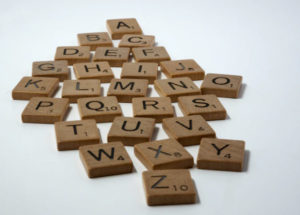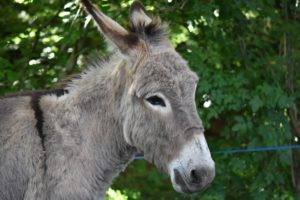
I write biblical and historical fiction. And I love it.
Why?
I groove on “how does that work” and “where did that come from.”
Perhaps it started with my father, an engineer. He could figure out everything. Refinish the basement. Remodel a bathroom. Repair a car engine. To him it was like solving a mystery. He’d read about it and learn as he went. As a five-year-old, I’d watch him lay a white sheet on the driveway. He’d take parts out of the car engine, setting each one on the sheet in the order in which he’d disassembled it. Then he’d put everything back in reverse order. And he’d talk to me like I could understand all he was doing.
Dad even made gardening interesting, despite tasking me with pulling weeds. Mostly I dug up rocks and played with the earthworms I disturbed. But he would slide in lessons about why earthworms were important for the soil.
I fell in love with science in second grade when I got a hefty science kit for Christmas. Its microscope uncovered a hidden world in a drop of creek water. Under the right conditions, test tubes of powders or crystals could become something completely different. Unfortunately, my mother didn’t share my enthusiasm. The science kit disappeared when one chemistry experiment stank up the basement.
What dad and my science kit were to “how does that work,” my paternal grandmother was to “where did that come from.” Tucked between her second-floor bathroom and attic was a secret room. That narrow space, dimly lit by one small, out-of-reach window, harbored countless intrigues that grandma kept to herself. More accessible was a corner of her dining room, its étagère full of family antiques. Each one had a story. Her eyes would sparkle as she’d launch into its narrative, always starting with: “Now this is special because …” And she’d let me hold the object of that story—even if it was a fragile china teacup great-aunt Portia had hand-painted.
Fast-forward to adulthood. One of my favorite books is The Way Things Work by David Macaulay. Since its first printing in 1998, it’s spawned three related books. All are technically children’s books. But I love how The Way Things Work explains levers, clock gears, submarines, and you-name-it in the coolest, easy-to-understand ways.
And I confess I’m a huge MacGyver [original series] fan. With a shoelace, a bottle of cleaning fluid, or a fistful of chocolate bars, he could escape from anything or save a city block from destruction. The show spawned classroom programs across the country to teach creative thinking and problem solving.
Research ignites my imagination the same way. I constantly find “hidden treasures” in history—tidbits that work perfectly to stage a scene, motivate a character, or create conflict.
Digging into biblical and historical research simply takes my breath away—especially every time archaeology affirms the Bible’s accuracy. Most importantly, when I see world history and the Bible cross paths, one-dimensional words on paper gain context and become three-dimensional people and events.
We learn history in bits and pieces. Similarly, the Bible isn’t organized in chronological order. I love to make connections between the two in my writing. Then people, culture, and conflicts come alive.
When you read my books and blogs, maybe you’ll get excited about history, too. Or at least curious enough to google more information about an event or a person. If you do, please let me know!
When world history and the Bible cross paths, one-dimensional words on paper become three-dimensional people and events. Share on X




Lana, I love your musings on the origins of your love of how things come together, and where things came from. I remember my grandmother sharing similar stories and always guiding them into a prayer for something currently going on in my life. That’s what I love about the best Christian fiction, how it relates to our lives and encourages our future. God bless you, my friend.
Thanks so much, Dana! History isn’t a book on a dusty shelf–it’s inspiration for life! Blessings on you and your writing!